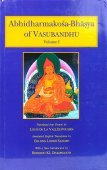Prapti, Prāpti: 30 definitions
Introduction:
Prapti means something in Buddhism, Pali, Hinduism, Sanskrit, Jainism, Prakrit, the history of ancient India, Marathi, Hindi. If you want to know the exact meaning, history, etymology or English translation of this term then check out the descriptions on this page. Add your comment or reference to a book if you want to contribute to this summary article.
Images (photo gallery)
In Hinduism
Yoga (school of philosophy)
Source: Wisdom Library: YogaPrāpti (प्राप्ति) is a Sanskrit word referring to the “ability to obtain anything desired”, as described in the Yoga Sūtras of Patañjali.
Source: ORA: Amanaska (king of all yogas): A Critical Edition and Annotated Translation by Jason BirchPrāpti (प्राप्ति) refers to “(the supernatural power of) being able to reach anything in the world”, and as one of the “eight common Yogic paranormal powers”, represents one of the various signs and paranormal powers (siddhi) experienced by the Yoga practicioner, according to the Amanaska Yoga treatise.—The last fifty-two verses of the Amanaska’s first chapter describe a temporal sequence of psychosomatic signs and paranormal powers (siddhi) brought about by absorption (laya). In the Amanaska, The 8 common yogic paranormal powers are, [e.g., the power to reach anything in the world (prāpti)], [...] This list is similar to that given in Pātañjalayogaśāstra 3.45.

Yoga is originally considered a branch of Hindu philosophy (astika), but both ancient and modern Yoga combine the physical, mental and spiritual. Yoga teaches various physical techniques also known as āsanas (postures), used for various purposes (eg., meditation, contemplation, relaxation).
Natyashastra (theatrics and dramaturgy)
Source: Wisdom Library: Nāṭya-śāstra1) Prāpti (प्राप्ति, “attainment”) refers to one of the thirty-six “characteristic features” (lakṣaṇa) of perfect ‘poetic compositions’ (kāvyabandha) and ‘dramatic compositions’ (dṛśyakāvya, or simply kāvya). According to the Nāṭyaśāstra chapter 17, these thirty-six lakṣaṇas act as instructions for composing playwrights. The term is used throughout nāṭyaśāstra literature.
2) Prāpti (प्राप्ति, “accession”) refers to the ‘accession’ of the anticipated joyful conclusion of the plot. Prāpti represents one of the twelve mukhasandhi, according to the Nāṭyaśāstra chapter 21. Mukhasandhi refers to the “segments (sandhi) of the opening part (mukha)” and represents one of the five segments of the plot (itivṛtta or vastu) of a dramatic composition (nāṭaka).
Source: archive.org: Natya Shastra1) Prāpti (प्राप्ति, “discovery”).—One of the thirty-six lakṣaṇa, or “excellent points of a dramatic composition”;—Description of prāpti: When on seeing some indications, the existence of something is assumed, it becomes an instance of Discovery (prāpti, lit. “attainment”) which is included among the marks of a good drama.
2) Prāpti (प्राप्ति).—One of the twelve elements of the ‘introduction segment’ (mukhasandhi);—(Description:) Accession (prāpti) is summing up the purpose of the Opening (mukha).

Natyashastra (नाट्यशास्त्र, nāṭyaśāstra) refers to both the ancient Indian tradition (shastra) of performing arts, (natya—theatrics, drama, dance, music), as well as the name of a Sanskrit work dealing with these subjects. It also teaches the rules for composing Dramatic plays (nataka), construction and performance of Theater, and Poetic works (kavya).
Purana and Itihasa (epic history)
Source: archive.org: Puranic EncyclopediaPrāpti (प्राप्ति).—A wife of Kaṃsa. Kaṃsa had two wives and the other was called Asti. (10th Skandha, Bhāgavata).
Source: archive.org: Shiva Purana - English Translation1) Prāpti (प्राप्ति) refers to the “power of reaching”, representing the achievements of the northern petal of the Aṣṭadala (mystical diagram of the lotus of eight petals), according to the Śivapurāṇa 2.1.11, while explaining the mode of worshipping Śiva:—“[...] the Liṅga shall be purified and installed with various mantras beginning with Praṇava and ending with Namaḥ (obeisance). The pedestal in the form of Svastika or lotus shall be assigned with Praṇava. In the eight petals, in the eight quarters, the eight achievements are identified [viz., the northern is Prāpti (power of reaching)]”.
2) Prāpti (प्राप्ति) refers to “attaining”, according to the Śivapurāṇa 2.3.9.—Accordingly, after Himācala (Himavat) said to Menā:—“[...] If Śiva is delighted, O Menakā, He will marry her. Everything shall be auspicious. The inauspicious features indicated by Nārada will perish. All inauspicious things are auspicious in Sadāśiva. Hence immediately teach your daughter to hasten to perform the penance for attaining Śiva [i.e., śiva-prāpti]”.
Source: Cologne Digital Sanskrit Dictionaries: The Purana Index1a) Prāpti (प्राप्ति).—A daughter of Jarāsandha and queen of Kaṃsa. After Kaṃsa's death she went to her father's house and reported the circumstance under which he was killed.*
- * Bhāgavata-purāṇa X. 50. 1-2; Viṣṇu-purāṇa V. 22. 1.
1b) A siddhi devi.*
- * Brahmāṇḍa-purāṇa IV. 19. 4; 44. 108.
1c) One of the eight yogaiśvaryas*
- * Vāyu-purāṇa 13. 3, 13.
1d) One of the ten branches of the Supāra group of Devas.*
- * Vāyu-purāṇa 100. 94.
Prāpti (प्राप्ति) refers to the name of a Lady mentioned in the Mahābhārata (cf. I.60.32). Note: The Mahābhārata (mentioning Prāpti) is a Sanskrit epic poem consisting of 100,000 ślokas (metrical verses) and is over 2000 years old.

The Purana (पुराण, purāṇas) refers to Sanskrit literature preserving ancient India’s vast cultural history, including historical legends, religious ceremonies, various arts and sciences. The eighteen mahapuranas total over 400,000 shlokas (metrical couplets) and date to at least several centuries BCE.
Vyakarana (Sanskrit grammar)
Source: Wikisource: A dictionary of Sanskrit grammarPrāpti (प्राप्ति).—Application of a rule, arrival at a particular form; incidence, occurrence of a particular rule;cf. अनन्तरा या प्राप्तिः सा प्रतिषिध्यते (anantarā yā prāptiḥ sā pratiṣidhyate) M. Bh. on P. I. 1.43.

Vyakarana (व्याकरण, vyākaraṇa) refers to Sanskrit grammar and represents one of the six additional sciences (vedanga) to be studied along with the Vedas. Vyakarana concerns itself with the rules of Sanskrit grammar and linguistic analysis in order to establish the correct context of words and sentences.
Shaktism (Shakta philosophy)
Source: Brill: Śaivism and the Tantric Traditions (shaktism)Prāpti (प्राप्ति) refers to “meeting (a wrong death)”, according to Sāhib Kaul’s Śārikāstrotra.—Accordingly, “With true devotion I worship that divine and omnipresent Śārikā, who bears the crescent moon on her head, who grants liberation, destroys delusion everywhere, destroys the bad fear of meeting a wrong death (mithyāmṛtyu-prāpti). O mother Śārikā, whoever devotedly recites your tāra-syllable, which carries one across the ocean of transmigration, may, when his wisdom is ripened through the knowledge of the absolute, even put to shame the Lord of the Word. [...]”.

Shakta (शाक्त, śākta) or Shaktism (śāktism) represents a tradition of Hinduism where the Goddess (Devi) is revered and worshipped. Shakta literature includes a range of scriptures, including various Agamas and Tantras, although its roots may be traced back to the Vedas.
Kama-shastra (the science of Love-making)
Source: Brill: Śaivism and the Tantric Traditions (kāmasūtra)Prāpti (प्राप्ति) refers to “having attained” [?] (dampness) (at the female genitalia), according to the Kāmasūtra of Vātsyāyana and Jaśodhara’s commentary called the Jayamaṅgalā .—Accordingly, “[When you are] about to practise sex, [first you should] rub her genitalia with your hand, and when there is dampness (rasa-prāpti-kāla), the sexual act can be commenced. This is the restoration of passion”.

Kamashastra (कामशास्त्र, kāmaśāstra) deals with ancient Indian science of love-making, passion, emotions and other related topics dealing with the pleasures of the senses.
Vaishnavism (Vaishava dharma)
Source: Pure Bhakti: Jaiva-dharmaPrāpti (प्राप्ति) refers to “attainment” and represents one the three types of desire (i.e., Abhilāṣa or Ruci)—If prema is compared to the sun, bhāva can be compared to a ray of the sun. The constitutional nature of bhāva is that it is a ray of the sun of prema, and its unique characteristic is that it purifies the heart of the jīva and thus causes the heart to become softened or melted. The word ruci signifies three desires. These are, e.g., (1) the desire to attain the service of Rādhā and Kṛṣṇa (prāpti-abhilāṣa).

Vaishnava (वैष्णव, vaiṣṇava) or vaishnavism (vaiṣṇavism) represents a tradition of Hinduism worshipping Vishnu as the supreme Lord. Similar to the Shaktism and Shaivism traditions, Vaishnavism also developed as an individual movement, famous for its exposition of the dashavatara (‘ten avatars of Vishnu’).
In Buddhism
Buddhist philosophy
Source: Google Books: A History of Indian Logic (Buddhist Philosophy)Prāpti (प्राप्ति) or Prāptisamā refers to “balancing the co-presence” and represents one of the various kinds of Jāti (“analogue” or “far-fetched analogy”) (in debate), according to Upāyakauśalyahṛdaya, an ancient work on the art of debate composed by Bodhisattva Nāgārjuna.
-
General definition (in Buddhism)
Source: Wisdom Library: Dharma-samgrahaPrāpti (प्राप्ति, “occurrence”) refers to one of the thirteen “conditions” (saṃskāra) that are “unassociated with mind” (citta-viprayukta) as defined in the Dharma-saṃgraha (section 30). The Dharma-samgraha (Dharmasangraha) is an extensive glossary of Buddhist technical terms in Sanskrit (e.g., prāpti). The work is attributed to Nagarjuna who lived around the 2nd century A.D.
In Jainism
General definition (in Jainism)
Source: Encyclopedia of Jainism: Tattvartha Sutra 3: The Lower and middle worldsPrāpti (प्राप्ति) refers to “stretching the body” and represents one of the eleven types of extraordinary form-changing (vikriyā), which itself is a subclass of the eight ṛddhis (extraordinary powers). These powers can be obtained by the Ārya (civilized people) in order to produce worldly miracles. The Āryas represent one of the two classes of human beings according to the 2nd-century Tattvārthasūtra 3.46, the other being Mleccha (barbarians).
What is meant by extraordinary power to stretch the body (prāpti-riddhi)? It is the extraordinary power by which one stretches his body so that his toe can touch the Meru Mountain while sitting.
Prāpti (प्राप्ति) refers to “obtaining (results)”, according to the 11th century Jñānārṇava, a treatise on Jain Yoga in roughly 2200 Sanskrit verses composed by Śubhacandra.—Accordingly, “That [meditation] is divided into two [types] according to whether it has an auspicious or inauspicious purpose [and] for humans it is the real cause of obtaining desirable and undesirable results (phala-prāpti—iṣṭāniṣṭaphalaprāpteḥ)”.

Jainism is an Indian religion of Dharma whose doctrine revolves around harmlessness (ahimsa) towards every living being. The two major branches (Digambara and Svetambara) of Jainism stimulate self-control (or, shramana, ‘self-reliance’) and spiritual development through a path of peace for the soul to progess to the ultimate goal.
India history and geography
Source: Cologne Digital Sanskrit Dictionaries: Indian Epigraphical GlossaryPrāpti.—(SII 2), benefit. (EI 7), revenue. (SITI), enjoyment; what is obtained from someone. Note: prāpti is defined in the “Indian epigraphical glossary” as it can be found on ancient inscriptions commonly written in Sanskrit, Prakrit or Dravidian languages.

The history of India traces the identification of countries, villages, towns and other regions of India, as well as mythology, zoology, royal dynasties, rulers, tribes, local festivities and traditions and regional languages. Ancient India enjoyed religious freedom and encourages the path of Dharma, a concept common to Buddhism, Hinduism, and Jainism.
Languages of India and abroad
Marathi-English dictionary
Source: DDSA: The Molesworth Marathi and English Dictionaryprāpti (प्राप्ति).—f (S) Gain, profit, acquisition. 2 Acquiredness, acquired or got state. 3 Arising or happening unto, befalling, betiding. 4 One of the eight superhuman faculties,--that of obtaining everything. 5 Freely. Attainment, advancement achieved, competency or qualification accomplished or reached. Ex. majabarōbara bōlāyālā tyācī kāya prāpti? nāṃvānēṃ vāghamārī paṇa vāghāpuḍhēṃ jāyālā kāya tujhī prāpti? See prājñā and the group under kimmata.
Source: DDSA: The Aryabhusan school dictionary, Marathi-Englishprāpti (प्राप्ति).—f Gain, profit. Acquiredness. Be- falling. Attainment.
Marathi is an Indo-European language having over 70 million native speakers people in (predominantly) Maharashtra India. Marathi, like many other Indo-Aryan languages, evolved from early forms of Prakrit, which itself is a subset of Sanskrit, one of the most ancient languages of the world.
Sanskrit dictionary
Source: DDSA: The practical Sanskrit-English dictionaryPrāpti (प्राप्ति).—f.
1) Obtaining, acquisition gain, attainment, profit; द्रव्य°, यशः°, सुख° (dravya°, yaśaḥ°, sukha°) &c.; अप्राप्तस्यैव या प्राप्तिः सैव संयोग उच्यते (aprāptasyaiva yā prāptiḥ saiva saṃyoga ucyate) Bhāṣā. P.
2) Reaching or attaining to.
3) Arrival, coming to.
4) Finding, meeting with.
5) Range, reach.
6) A guess, conjecture.
7) Lot, share, portion.
8) Fortune, luck.
9) Rise, production.
1) The power of obtaining anything (one of the eight Siddhis, q. v.).
11) Union, collection (saṃhati).
12) The result of actions done in a former life.
13) Fate, destiny; पक्षिणां तदपि प्राप्त्या नादत्तमुपतिष्ठति (pakṣiṇāṃ tadapi prāptyā nādattamupatiṣṭhati) Pañcatantra (Bombay) 2.127.
14) Being valid, holding good, application (as of a rule).
15) The successful termination of a plot (sukhāgama).
16) (In Rhet.) A conjecture based on the observation of a particular thing.
17) (In astrol.) Name of the 11th lunar mansion.
Derivable forms: prāptiḥ (प्राप्तिः).
Source: Cologne Digital Sanskrit Dictionaries: Shabda-Sagara Sanskrit-English DictionaryPrāpti (प्राप्ति).—f.
(-ptiḥ) 1. Gain, profit. 2. Acquiring, getting, obtaining. 2. Improvement, success. 4. Rise, ascent. 5. Collection, assemblage, quantity. 6. Happy denouement, successful termination of a plot. 7. Guessing, discovering from a hint. 8. One of the eight superhuman faculties, the power of obtaining everything. E. pra before, āp to get or obtain, aff. ktin .
Source: Cologne Digital Sanskrit Dictionaries: Benfey Sanskrit-English DictionaryPrāpti (प्राप्ति).—i. e. pra-āp + ti, f. 1. Coming, taking place, [Pañcatantra] 119, 5 (kutas te brāhmaṇa-bhojana-, Whence can you afford to entertain a Brāhmaṇa?). 2. Taking possession, obtaining, [Kathāsaritsāgara, (ed. Brockhaus.)] 4, 105; Bhāṣāp. 114. 3. The power of obtaining every thing, one of the eight superhuman faculties, [Lassen, Anthologia Sanskritica.] 3, 19. 4. Obtaining by actions done in a former existence, [Pañcatantra] ii. [distich] 132. 5. Gain, [Hitopadeśa] 101, 10. 6. Fortune, Mahābhārata 14, 1337. 7. Successful termination of a plot.
Source: Cologne Digital Sanskrit Dictionaries: Cappeller Sanskrit-English DictionaryPrāpti (प्राप्ति).—[feminine] reaching, attaining (conc. also as a superhuman faculty), arriving at, coming, entering, pervading; finding, meeting with; acquisition, rescue from ([ablative]), gain, profit, fortune; resulting from a rule, validity, correctness ([grammar]).
Source: Cologne Digital Sanskrit Dictionaries: Monier-Williams Sanskrit-English Dictionary1) Prāpti (प्राप्ति):—[from prāp] f. advent, occurrence, [Atharva-veda; Yājñavalkya; Pañcatantra]
2) [v.s. ...] reach, range, extent, [Sūryasiddhānta]
3) [v.s. ...] reaching, arrival at ([compound]), [Rāmāyaṇa]
4) [v.s. ...] the power (of the wind) to enter or penetrate everywhere, [Bhāgavata-purāṇa]
5) [v.s. ...] the power of obtaining everything (one of the 8 superhuman faculties), [Mārkaṇḍeya-purāṇa; Vetāla-pañcaviṃśatikā; Monier-Williams’ Buddhism 245]
6) [v.s. ...] saving, rescue or deliverance from ([ablative]), [Ratnāvalī]
7) [v.s. ...] attaining to, obtaining, meeting with, finding, acquisition, gain, [Manu-smṛti; Mahābhārata] etc.
8) [v.s. ...] the being met with or found, [Nyāyasūtra [Scholiast or Commentator]]
9) [v.s. ...] discovery, determination, [Sūryasiddhānta]
10) [v.s. ...] obtainment, validity, holding good (of a rule), [Kātyāyana-śrauta-sūtra; Pāṇini; Atharvaveda-prātiśākhya]
11) [v.s. ...] (in [dramatic language]) a joyful event, successful termination of a plot ([Daśarūpa])
12) [v.s. ...] a conjecture based on the observation of a particular thing, [Sāhitya-darpaṇa]
13) [v.s. ...] lot, fortune, luck, [Śvetāśvatara-upaniṣad; Mahābhārata]
14) [v.s. ...] (in [astrology]) Name of the 11th lunar mansion, [Varāha-mihira]
15) [v.s. ...] a collection (= saṃhati), [cf. Lexicographers, esp. such as amarasiṃha, halāyudha, hemacandra, etc.]
16) [v.s. ...] Name of the wife of Śama (son of Dharma), [Mahābhārata]
17) [v.s. ...] of a daughter of Jarā-saṃdha, [Harivaṃśa; Purāṇa]
Source: Cologne Digital Sanskrit Dictionaries: Yates Sanskrit-English DictionaryPrāpti (प्राप्ति):—[prā+pti] (ptiḥ) 2. f. Gain; success; rise; collection; the superhuman power of obtaining every thing.
Source: DDSA: Paia-sadda-mahannavo; a comprehensive Prakrit Hindi dictionary (S)Prāpti (प्राप्ति) in the Sanskrit language is related to the Prakrit word: Patti.
[Sanskrit to German]
Sanskrit, also spelled संस्कृतम् (saṃskṛtam), is an ancient language of India commonly seen as the grandmother of the Indo-European language family (even English!). Closely allied with Prakrit and Pali, Sanskrit is more exhaustive in both grammar and terms and has the most extensive collection of literature in the world, greatly surpassing its sister-languages Greek and Latin.
Hindi dictionary
Source: DDSA: A practical Hindi-English dictionaryPrāpti (प्राप्ति):—(nf) receipt; procuration; acquisition; income; profit; ~[ptyāśā] the stage in the action of a drama when the achievement of the desired end seems to be likely.
...
Kannada-English dictionary
Source: Alar: Kannada-English corpusPrāpti (ಪ್ರಾಪ್ತಿ):—
1) [noun] the fact of attaining (something).
2) [noun] the fact of reaching, arriving at (one’s destination).
3) [noun] something that is got, obtained.
4) [noun] destiny that favourable.
5) [noun] a mystical power by which one can get anything that is wished for.
Kannada is a Dravidian language (as opposed to the Indo-European language family) mainly spoken in the southwestern region of India.
See also (Relevant definitions)
Starts with: Praptijna, Praptika, Praptikarta, Praptimant, Praptimat, Praptipurusha, Praptisama, Praptisambhava, Praptishaithilya, Praptisiddhi, Praptisu, Praptyabhilasha, Praptyasha.
Ends with (+28): Abhiprapti, Adhiprapti, Anuprapti, Aprapti, Arthaprapti, Asamprapti, Astaprapti, Atiprapti, Atmaprapti, Avantaraprapti, Bhumiprapti, Brahmaprapti, Dehantaraprapti, Falprapti, Gurupadapadmaprapti, Halsvaraprapti, Icchaprapti, Ichchhaprapti, Ishtaprapti, Kamkanaprapti.
Full-text (+106): Phalaprapti, Aprapti, Vidyaprapti, Praptisama, Arthaprapti, Brahmaprapti, Samprapti, Yathaprapti, Praptyasha, Ashtasiddhi, Praptishaithilya, Sampraptidvadashi, Kirakola-prapti, Praptimat, Aishvarya, Prapautra, Adamilakata, Namsha, Pariprapti, Radhana.
Relevant text
Search found 65 books and stories containing Prapti, Prāpti; (plurals include: Praptis, Prāptis). You can also click to the full overview containing English textual excerpts. Below are direct links for the most relevant articles:
Abhidharmakośa (by Leo M. Pruden)
Garga Samhita (English) (by Danavir Goswami)
Verse 1.6.14 < [Chapter 6 - Description of Kaṃsa’s Strength]
Verse 6.1.4 < [Chapter 1 - Jarāsandha’s Defeat]
Verse 5.8.47 < [Chapter 8 - The Killing of Kaṃsa]
Vakyapadiya of Bhartrihari (by K. A. Subramania Iyer)
Verse 3.3.19 < [Book 3 - Pada-kāṇḍa (3): Sambandha-samuddeśa (On Relation)]
Verse 3.14.121 < [Book 3 - Pada-kāṇḍa (14): Vṛtti-samuddeśa (On Ccomplex Formation)]
Verse 3.14.421 < [Book 3 - Pada-kāṇḍa (14): Vṛtti-samuddeśa (On Ccomplex Formation)]
Sahitya-kaumudi by Baladeva Vidyabhushana (by Gaurapada Dāsa)
Text 10.71 < [Chapter 10 - Ornaments of Meaning]
Text 10.199 < [Chapter 10 - Ornaments of Meaning]
Jivanandana of Anandaraya Makhin (Study) (by G. D. Jayalakshmi)
Basic features of Nāṭaka < [Chapter 6 - Dramatic aspects of the Jīvanandana Nāṭaka]
Origin and Development of Allegory in Sanskrit Literature and Drama < [Chapter 1 - Allegorical Plays in Sanskrit Literature]
Rig Veda (translation and commentary) (by H. H. Wilson)
Rig Veda 4.34.2 < [Sukta 34]
Related products

